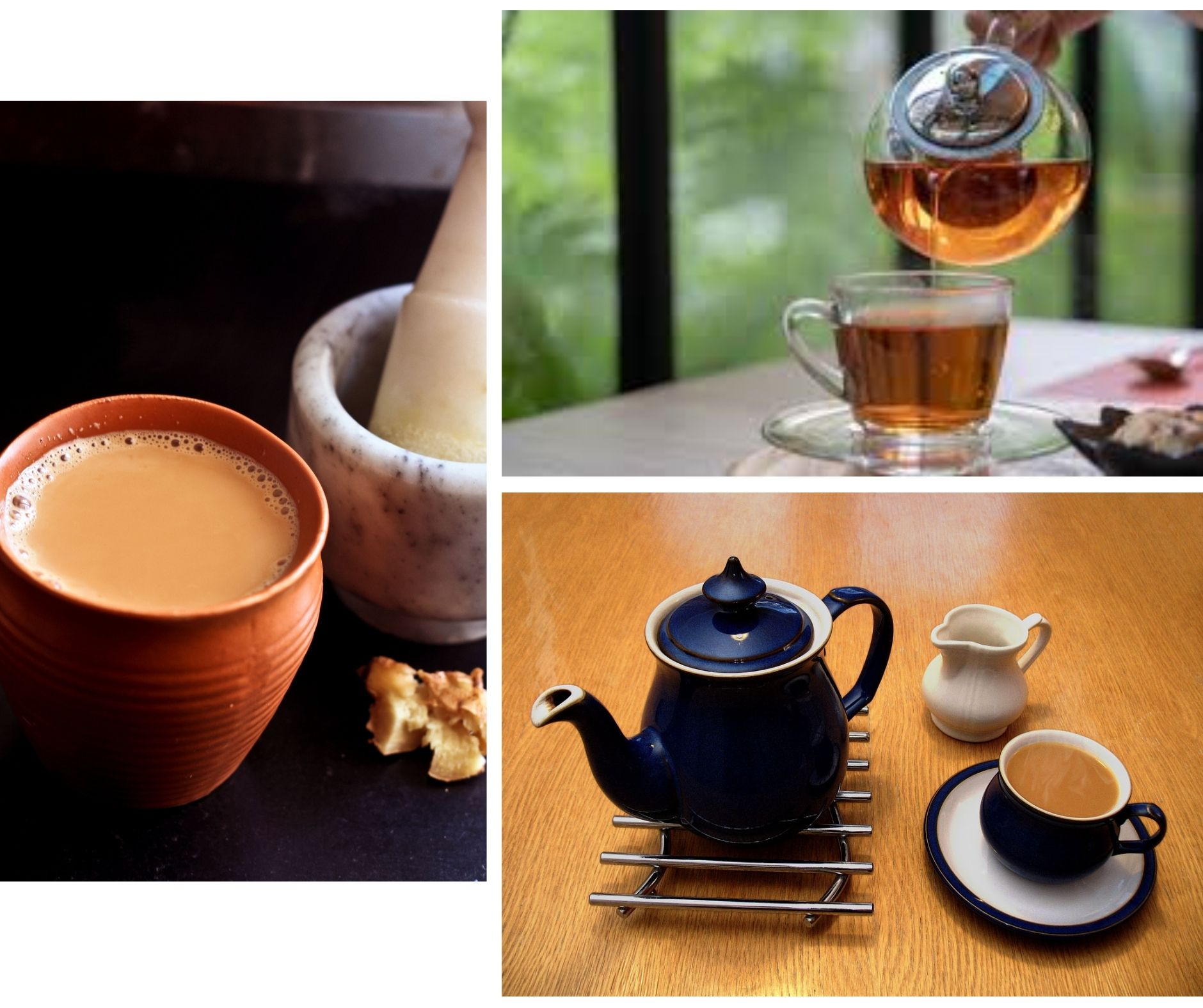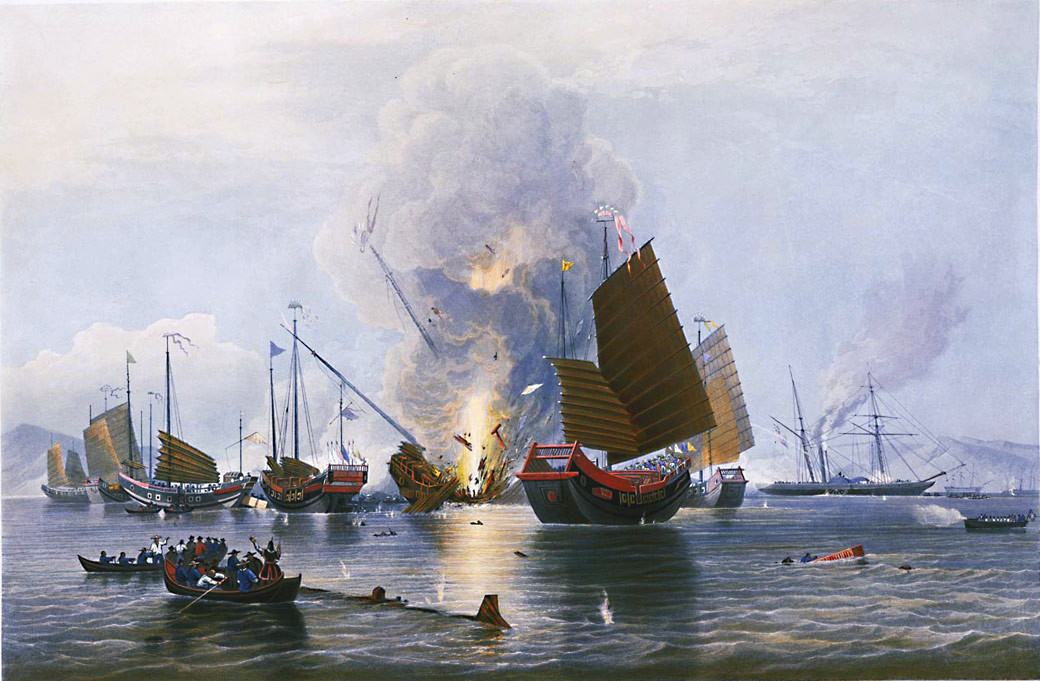Just think: in the one second you took to read the title of this post; 25000 cups of tea had been drunk all over the world. Tea is the most popular beverage in the world — second only to bottled water. The Chinese invented tea-brewing probably before the 2nd century BC. They were, (and are) the largest tea producers of the world. For thousands of years, they enjoyed quiet cups of tea till about the 17th century, when suddenly, the whole world went gaga about the brewed liquid. What caused this large scale globalization?

Well, by the 17th century, the British had discovered the joy of tea, they became the largest buyers of Chinese tea. Later, when they ran into difficulties in procuring tea from the Chinese, they sulked, they smuggled, and even declared war on China. This was known as the opium war (If you are wondering how opium and tea are even remotely connected, join us on The Bombay Story). When even that did not work out, the British started cultivating tea in their own colonies — India, Srilanka, Bangladesh, Kenya and Myanmar. These countries are top tea producers even now. At a per capita consumption of nearly 2 Kg per annum, they are among the top 3 tea-drinking nations of the world.

But who helped Britain discover the joy of tea? It was Portugal! In 1662, Portuguese princess Catherine de Braganza married English King Charles II. Politically, the alliance was a delightful diplomatic coup. But for Catherine, life was not easy in a new land. England spoke a different language, and Catherine was a lone orthodox Catholic in the land of Anglicans. The culture shock hit her hard the moment she landed in England.
Her bridal sea voyage from Lisbon had been rough, and she was ill when the ship berthed at Portsmouth. So, she asked her hosts, please may I have some tea? This was a very natural request for her. In Portugal, Chinese tea was a popular restorative: after all the Portuguese had been doing business in China since the early 1500s, first as smugglers and pirates and later as legitimate merchants. Yet, in England, only a few had tasted this exotic drink; and in Portsmouth they had not even heard of Tea! The locals innocently offered her ale and this made her even more ill!
Fortunately, the gifts she brought as dowry included innumerable crates of Tea. She decided to spread the good cheer through tea and win friends in an alien land. The new Queen’s tea-parties were an instant hit and tea became immensely popular with the British aristocracy. It quickly trickled down to the masses too. Remember, King Charles was the biggest patron of the British East India Company (EIC) and had already signed charters giving monopoly trading rights in the Orient to the EIC. Soon the EIC began to import tea. In 1664 imports amounted to just 1 Kg from China! But by 1801 this figure was over 10886000 Kgs! By the 1750s, tea became the British national drink. And as the British demanded more tea, the EIC gradually became the dominant force in tea trade. It was the British who popularized the idea of enhancing Tea by adding milk and sugar. Soon the English were exporting tea-culture, to the world.
[Detour: Not a tea drinker, but a diehard coffee lover? We have a story for you: Chennai’s Kaapiright? – The true origins of coffee]
Archives
- January 2022
- December 2021
- November 2021
- August 2021
- March 2021
- February 2021
- January 2021
- December 2020
- November 2020
- October 2020
- September 2020
- August 2020
- April 2020
- March 2020
- February 2020
- January 2020
- November 2019
- October 2019
- September 2019
- August 2019
- July 2019
- June 2019
- August 2017
- February 2017
- January 2017
- October 2013
Featured Posts
- Tales that pots tell: Keeladi excavations AUGUST 18, 2021
- The Last Grand Nawab: Wallajah FEBRUARY 10, 2021
- How Tej Singh became Raja Desingu of Gingee FEBRUARY 5, 2021
- How Shahjahan seized the Mughal throne JANUARY 28, 2021
- Alai Darwaza – Qutub Minar Complex, Delhi NOVEMBER 21, 2020
- Marking History through British buildings NOVEMBER 17, 2020
- The last great queen of Travancore NOVEMBER 7, 2020
- Brahmi and the evolution of scripts OCTOBER 15, 2020
- The Cambodian King of Kanchipuram OCTOBER 14, 2020
- James Prinsep – the man who read the writing on the wall OCTOBER 10, 2020
- Mariamman – the Village Goddess who travelled SEPTEMBER 30, 2020
- Misnamed Monuments of Mamallapuram SEPTEMBER 28, 2020








